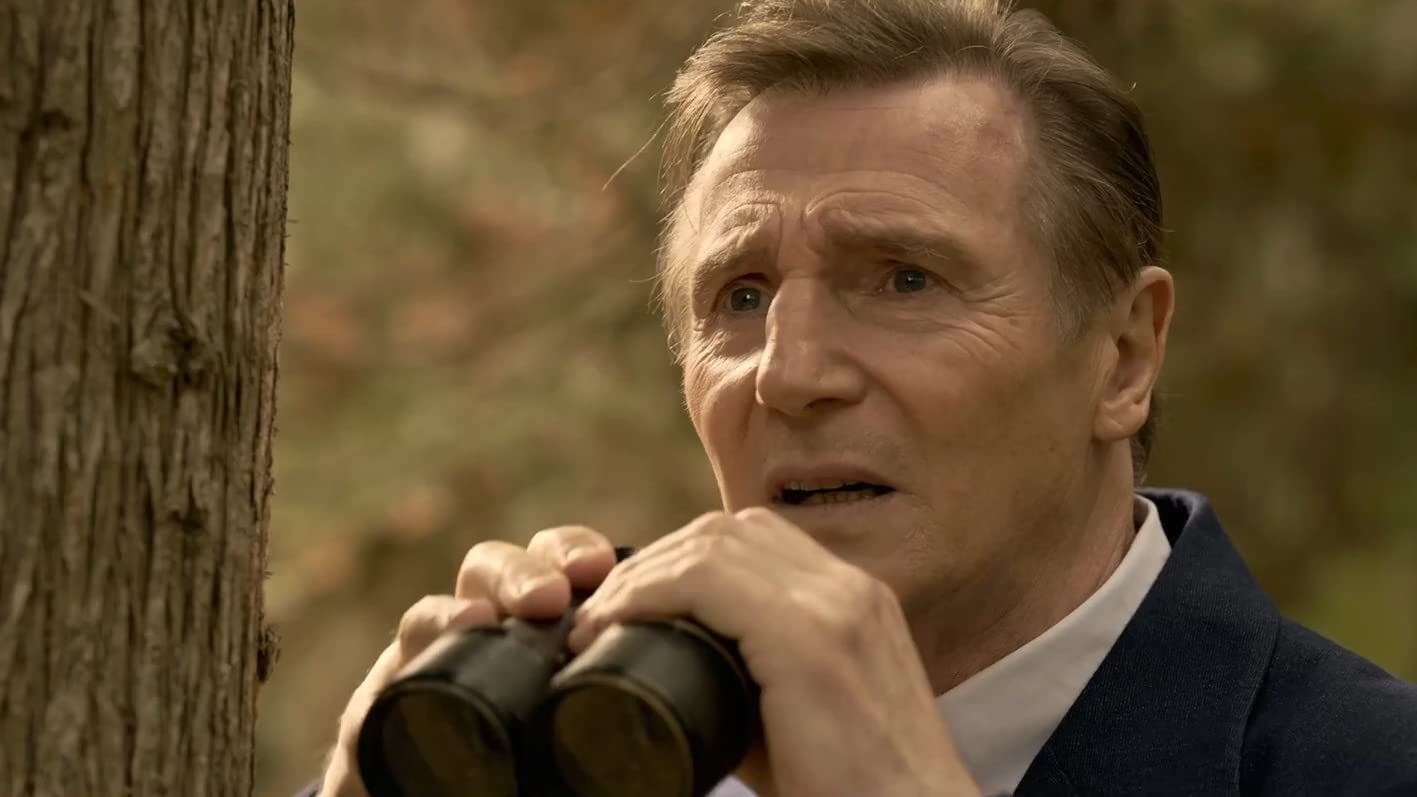
Almost 27 years after the release of Michael Collins, the Irish director of epochal masterpieces such as The Crying Game and the love epic The End of an Affair, Neil Jordan collaborates once again with lead actor Liam Neeson, in a flawed attempt at the revival of the classic film-noir that fails to deliver in so many aspects. The screenplay, co-signed by Jordan and William Monahan, is based on John Banville's novel The Black-Eyed Blonde (written under the pseudonym Benjamin Black) which was published in 2014, and it is one of the five books commissioned by the Chandler estate in an initiative to keep the spirit of Chandler's work alive and immune to the passage of time. Banville's novel is the authorized sequel to the all-time-classic The Long Goodbye, though in this film's case, the screenwriters chose to strike off a large part of the book's plot, finally delivering a final cut of their own design only loosely based on the Black-Eyed Blonde. Marlowe casts a well-respected group of actors, including Jessica Lange, Diane Kruger, Danny Huston and others, but this alone can't redeem the production from its several shortcomings that primarily concern the humdrum plot, the lack of a definitive directorial tone -something I would never expect from a director of Neil Jordan's stature- and the wrong choice of actor in the lead role of detective Philip Marlowe.
Throughout the times, there have been several notable actors who have been called to incarnate the hard-boiled detective with the rigid moral code and teeming cynicism. Humphrey Bogart, Elliot Gould, Robert Mitchum, and James Garner are the most prominent examples of performers who incarnated the hero of a godforsaken era with all their skill and might. At the age of 70, Liam Neeson, a talented actor who, nevertheless, has been pigeonholed -for some unfathomable reason that I will never figure out- as an action hero, sounds like an unlikely cast for the role of Marlowe as he is known to excel in embodying characters "who are fueled by something larger than themselves." and, moreover, lacks the mandatory gravitas that a film detective-protagonist should exude (think of Bogart). Neeson's performance is lackluster, adding another problem to the mix, a vital one as a film noir's reception is highly dependent on the character of the protagonist. Philip Marlowe has his own unique place in the history of the hard-boiled genre and, according to Chandler, he "just grew out of the pulps. He was no one person." This pulpy feeling to the character is completely non-existent here, and instead we watch as an overage gumshoe maneuvers the city's seedy underbelly, having one-to-one interactions with several others with some of the dialogue coming across as superfluous.
The story revolves sets off with Clare Cavendish (Diane Kruger) visiting Marlowe in his office to ask him to investigate the disappearance of her paramour, one Nico Peterson (François Arnaud) who allegedly died outside a Los Angeles nightclub in a car accident. Marlowe's inquest will throw him to the dark side of LA where the underworld is run by high-end pimps, shady movie producers, aspiring cinema artists who are ready to do anything in order to succeed and, of course, the ever-present femmes fatales who seem to exist only to torment the male detective heroes. Kruger is excellent in her portrayal of the most complex and multidimensional character in the movie, and the sexual tension between her and Marlowe is palpable, especially as we are reaching the finale and the big revelation(s). Jessica Lange, always stunning despite her age, plays Clare's mother who breeds an unhealthy interest in her daughter's personal affairs, a role that doesn't add anything of significance to the story. The actors playing the villains, namely Danny Huston as the club's owner Floyd and Alan Cumming make a decent effort to keep afloat, however the plot's inconsistencies and the tonal apathy don't help them in the least.
The cinematography and optics of Marlowe are reminiscent of a typical film noir, but even those fall victims of the production's overwhelming ennui, which is precisely what the audience chiefly receives when watching the movie. Ewan Gleadow writes in Cult Following: "Utterly riddled with stereotypes of the time, from Buick’s and Broadway to the whisky flasks of the trilby-wearing detectives, there is accepting the time and engaging it, and then there is Marlowe", a comment that captures the film's shallowness that manifests itself in so many ways. The stilted retro-noir styling comes across as artificial and fake while the deficient screenplay attempts to achieve traction by sprinkling the dialogue with quotes by Christopher Marlowe and even William Strunk Jr. (The Elements of Style) and oblique references to the director's Irishness as both the characters played by Kruger and Lange originate from there while Marlow says that he fought with the Irish Rifles in World War I. I firmly believe that Marlowe won't ever find its standing among the best on-screen adaptations of Chandler's iconic protagonist and if you want to watch the true Philip Marlowe, skip that one and go back to the 1946 film The Big Sleep or the 1975 Farewell, My Lovely.